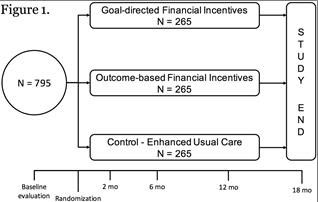
Financial Incentives for Weight Reduction Study
The Financial Incentives foR Weight Reduction (FIReWoRk) Study is a National Institutes of Health–funded randomized controlled trial to test the effectiveness of goal-directed incentives and outcome-based incentives on weight loss as compared to enhanced usual care for obesity. This study is led by investigators Joseph Ladapo, MD, PhD, of UCLA, and Melanie R. Jay, MD, of NYU Langone.

This study invites socioeconomically disadvantaged patients with obesity residing in Los Angeles or New York City to participate. Patients in the goal-driven intervention receive financial incentives for achieving intermediate goals that promote weight loss such as dietary tracking, self-weighing, physical activity, and participation in intensive weight management programs. Patients in the outcome-based intervention receive incentives for successfully losing at least five percent of their baseline weight. This study also examines the economic sustainability of financial incentive programs and their acceptability to patients. The results of this study can inform future interventions that reduce obesity and enhance patient and population health.
Specific Aims
First, we will compare the impact of the following three approaches for obesity treatment on 1) weight loss (at least five percent of baseline weight); 2) use of evidenced-based weight loss programs; and 3) quality of life among obese patients living in socioeconomically disadvantaged urban neighborhoods:
- enhanced usual care for obesity, which is comprised of provision of a food and activity diary, bathroom scale, wearable fitness tracker, exercise and nutrition education materials, and referral information for intensive, evidence-based weight loss programs
- enhanced usual care plus goal-directed financial incentives
- enhanced usual care plus outcome-based financial incentives
Secondly, we will compare the short-term and long-term return on investment of using goal-directed and outcome-based financial incentives to promote weight loss.
Contact Information
Location: NYU Lutheran Family Health Centers, NYC Health + Hospitals/Bellevue, Olive View - UCLA Medical Center
Contact: Stephanie Orstad, Postdoctoral Fellow and Project Manager
Email: stephanie.orstad@nyulangone.org
Phone: 212-263-4143
Funding Source: R01, National Institute on Minority Health and Health Disparities, National Institutes of Health
